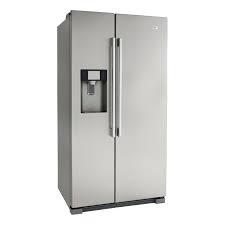记忆方法
记忆“fridge”的方法是将其与“freezer”组合,想象一个“free”的冰箱( fridge),它提供储存食物的“fridge”空间。这种联想结合了“free”和“fridge”的音和意义,有助于记忆。
以上内容由AI生成, 仅供参考和借鉴
中文词源
fridge 冰箱
缩写自refrigerator.
英语词源
- fridge (n.)
- shortened and altered form of refrigerator, 1926, an unusual way of word-formation in English; perhaps influenced by Frigidaire (1919), name of a popular early brand of self-contained automatically operated iceless refrigerator (Frigidaire Corporation, Detroit, Michigan, U.S.), a name suggesting Latin frigidarium "a cooling room in a bath." Frigerator as a colloquial shortening is attested by 1886.
权威例句
- 1. The fridge door was open and food was scattered across the floor.
- 冰箱门开着,食物散落在地板上。
- 2. Keep what's left in a covered container in the fridge.
- 把剩下的食物装入带盖的容器,放进冰箱。
- 3. Defrost the fridge regularly so that it works at maximum efficiency.
- 定期给冰箱除霜,以便它能发挥其最高效率。
- 4. The brown mush in the fridge is some veg soup left over.
- 冰箱里的棕色糊状东西是一些剩的蔬菜汤。
- 5. He took a can of beer from the fridge.
- 他从冰箱里取出一罐啤酒。
